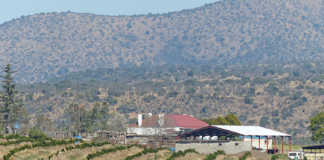
Photo: FW Archive
Government is currently considering the implementation of a quota system for the employment of foreign nationals to ensure more jobs are reserved for South Africans in an attempt to curb rising unemployment.
This was according to Musa Zondi, spokesperson for the Department of Employment and Labour.
Theo Boshoff, Agbiz’s head of legal intelligence, confirmed that Agbiz and Agri SA were members of a forum that was in discussion with government to address labour concerns.
“One of the terms of reference is to see where the skills gaps are, in order to [determine] where AgriSETA financing should go.”
However, recent violent protests by members of the trucking industry were forcing government to specifically focus on this industry’s concerns, Zondo said.
“The Department of Employment and Labour, the Department of Home Affairs, and the deputy minister of police, along with officials from the Department of Transport, and other affected departments, have pledged to speed up policy changes to address some of the issues that have been raised.”
In a statement released on Monday, 8 November, Minister of Employment and Labour Thulas Nxesi said: “There are Home Affairs and Employment and Labour policy initiatives to address migration and related policy initiatives.
“I would, however, like to appeal to those who feel aggrieved to desist from intimidation, road disruptions, undermining of existing laws and structures.”
This was echoed by Minister of Home Affairs Aaron Motsoaledi who assured the industry that a border management authority (BMA) was being set up, which would be engaging with the trucking sector.
Zondi said the Transport department was addressing licensing and other issues including cross-border transport relations, foreign-issued driver’s licenses, fake licences, prosecution of non-complying employers, and discrimination against local drivers by the industry.
“We are focusing on people who are in the country illegally, but we need to accept that we have to look at some kind of a quota system for South Africans. We need to identify which industries will protect South African jobs,” Zondi told Farmer’s Weekly.
Among other issues, the department was looking into peoples’ documentation, he said.
“It’s relatively easy to find fake papers, so we are checking to see who is legal. A foreign trucker could also have an international driver’s license, so it could be possible to be in South Africa illegally, but still having a legal driver’s license.”
Jaco Minnaar, president of Agri SA, said with an unemployment rate of 41%, according to the expanded definition, he could understand why citizens were upset by the perception that illegal foreigners were taking up jobs.
“However, there are not many people with the qualification [Code 14 driver’s license] and/or training to be truck drivers. It would be interesting to see how many illegal foreign nationals are really illegally employed in the industry.”
Boshoff added that it was important to distinguish between critical skills, scientific skills and general labour.
“If we do not have enough South Africans with the necessary critical skills and if we are not allowed to import the skills, it will act as a disabler to our economy,” he added.
“The same goes for skills, such as sheep-shearing. About 70% of the current shearers used in South Africa hail from Lesotho. They are irreplaceable.”
Minnaar stressed that it would be important to determine whether government would be discriminating against all foreigners, as this could be considered xenophobic.
“That would also be wrong. Farmers do employ many legal foreign nationals. They are good, hard workers and we need to protect them as well.”












